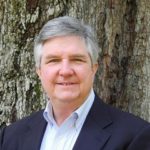Regarding Private Easements
Letter to the Editor, March 25, 2018
Opinion
Letter: Private Easements
March 25, 2018
Dorchester County’s purchase of nearly 128 lowland acres between two housing developments, “Dorchester County buys large Ashley River tract to conserve it,” begs the question: Why should public dollars be spent to purchase conservation easements on privately owned land?
One answer is that our Lowcountry critically needs protection from over-development at a time when flooding affects not only our traffic but the very integrity of our homes and neighborhoods at considerable cost to taxpayers (and insurance company owners and customers). Put simply, protected soil helps to absorb water and distributes it more slowly — benefits that can hardly be overstated.
Another answer is that protected land provides a vital habitat for fish and wildlife. Even when county residents can’t walk across private land under a conservation easement, they often reap the benefits through recreation, including hunting and fishing, in surrounding areas. Owners also get to retain a number of rights over how their property is used, as well they should.
Finally, nature-based tourism is a growing industry and the perfect avenue to showcase the natural beauty of our state.
Conservation easements enable scenic roads and provide access points for canoeing, kayaking, paddle boarding, birding and photography, all growing in popularity in the Lowcountry. Jobs in such businesses are inherently local and cannot be outsourced. Further, land under easement stays on the tax rolls, contributing to public revenue.
As former executive director of Drayton Hall and chairman of the Ashley Scenic River Advisory Council, I understand how public and private partnerships reinforce one another. When it comes to protecting South Carolina’s precious lands — both private and public — we must adopt a “both and” instead of an “either or” approach.
I urge our political and business leaders to continue to support such partnerships for private conservation easements and programs like the S.C. Conservation Bank and the national Land and Water Conservation Fund, which help make partnerships like these possible. They provide a host of benefits for the entire public at comparatively low costs.
George McDaniel, Ph.D.
Rutherford Street
Summerville
 George W. McDaniel, Ph.D., is President of McDaniel Consulting, LLC, a strategy firm that helps organizations use history to build bridges within itself and to its broader constituents. The company’s tag line, “Building Bridges through History,” is grounded in McDaniel’s personal beliefs and his experience in site management, preservation, education, board development, fundraising, and community outreach. Rather than using history to divide us, he strives to help organizations use history, especially local history, to enhance cross-cultural understanding and to support local museums, preservation, and education. Dr. McDaniel recently led volunteer efforts with Emanuel AME Church and historical organizations in Charleston to use historic preservation to enhance racial reconciliation and healing. McDaniel is also the Executive Director Emeritus of Drayton Hall, a historic site in Charleston, SC, owned by the National Trust for Historic Preservation.
George W. McDaniel, Ph.D., is President of McDaniel Consulting, LLC, a strategy firm that helps organizations use history to build bridges within itself and to its broader constituents. The company’s tag line, “Building Bridges through History,” is grounded in McDaniel’s personal beliefs and his experience in site management, preservation, education, board development, fundraising, and community outreach. Rather than using history to divide us, he strives to help organizations use history, especially local history, to enhance cross-cultural understanding and to support local museums, preservation, and education. Dr. McDaniel recently led volunteer efforts with Emanuel AME Church and historical organizations in Charleston to use historic preservation to enhance racial reconciliation and healing. McDaniel is also the Executive Director Emeritus of Drayton Hall, a historic site in Charleston, SC, owned by the National Trust for Historic Preservation.
A frequent writer, speaker, and facilitator about such issues, he can be reached at gmcdaniel4444@gmail.com or through his website at www.mcdanielconsulting.net.
Header Image: Post & Courier OP-ED

 McDaniel Consulting LLC is a strategy firm that helps organizations use history to build bridges within itself and its broader constituents.
McDaniel Consulting LLC is a strategy firm that helps organizations use history to build bridges within itself and its broader constituents.